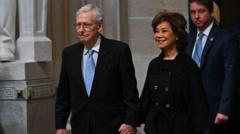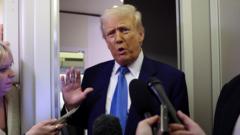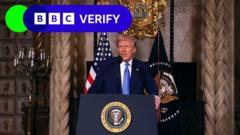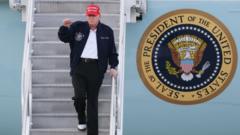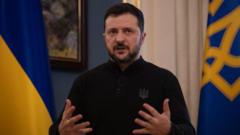The recent US-Russia talks in Saudi Arabia brought together influential diplomats from both nations, including US Secretary of State Marco Rubio and Russian Foreign Minister Sergei Lavrov, signaling a possible shift in diplomatic relations amidst ongoing tensions.
Key Players at the Recent US-Russia Talks in Saudi Arabia
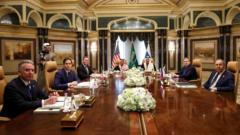
Key Players at the Recent US-Russia Talks in Saudi Arabia
A detailed look at the notable figures involved in the significant US-Russia discussions in Saudi Arabia and their potential roles in future diplomatic relations.
The recent talks between the United States and Russia in Saudi Arabia marked a notable moment in international diplomacy, highlighted by the presence of three Americans and two Russians, each holding significance in their respective roles. This meeting is designed to lay the groundwork for higher-level diplomatic discussions, suggesting a potential thaw in relations that have become increasingly strained.
On the American side, US Secretary of State Marco Rubio led the delegation, known for his push toward ending the war in Ukraine. Rubio previously voted against a substantial military aid package and views China as a foremost threat, suggesting that Beijing benefits from the US being engaged in European conflicts. He emphasized the need for ongoing discussions, stating that "one meeting is not going to solve [the war]" while highlighting the importance of incorporating both Ukraine and Europe in future dialogues.
Joining Rubio was National Security Adviser Mike Waltz, who articulated that the US expects some form of recompense for its financial support to Ukraine. Waltz advocates that European nations must take greater responsibility for the conflict's implications on future security guarantees and posits that Ukraine should consider partnerships regarding its valuable natural resources.
A lesser-known yet significant figure was Steve Witkoff, a close ally of former President Donald Trump. After recent discussions with Trump, Witkoff was appointed to engage Russia. Despite being portrayed primarily as the Middle East envoy, his recent delegation could imply deeper diplomatic motivations given his historical relationship with Trump.
Representing Russia were seasoned diplomats Sergei Lavrov and Yuri Ushakov. Lavrov, in office since 2004, has been a cornerstone of Russia's foreign relations, while Ushakov carries invaluable experience as a former ambassador to the US, enabling him to navigate complex diplomatic landscapes. Their presence underscores Russia's intent to re-engage with the international community after years of isolation.
Additionally, Kirill Dmitriev, head of Russia's Direct Investment Fund, was part of the delegation, signaling the economic interests at stake. Dmitriev’s efforts towards establishing economic relations with the US add a layer of complexity, given his personal ties to Putin and a solid understanding of America's financial ecosystem.
The meeting was facilitated by two Saudi officials: Foreign Minister Prince Faisal bin Farhan and National Security Adviser Musaed al-Aiban, indicating Saudi Arabia’s increasing role as a diplomatic intermediary in global affairs. Their involvement reflects a broader strategy to expand Saudi influence in regional and global geopolitical matters.
This assembly of key figures from both the US and Russia marks a potential pivot in ongoing diplomatic tensions and a proactive step toward establishing renewed communication channels, albeit with challenges ahead in addressing historic grievances and current crises.



